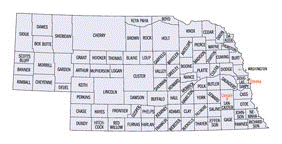Geography Program

Geography Program: Faculty Publications
Document Type
Article
Date of this Version
9-1979
Abstract
Almost since its introduction into American high schools and colleges, geography has been plagued with the problem of justifying its existence as a bona fide academic discipline. This identity problem has been attributed to a variety of circumstances and conditions, including the common explanation that geography is a virtually unbounded discipline. For many individuals this unduly amorphous characteristic is particularly burdensome when attempts are made to define the subject matter of geography. This, in turn, hampers the presentation of a clear and distinct image of the discipline to nongeographers. Closely related to the problem of geography's diverse content and delineation is the multitude of meanings associated with its very name. Because "geography" conveys different notions from one individual to another, the resulting combination of perspectives frequently leads to an indistinct image of its domain.
Despite the fact that some geographers may wish that the discipline had a narrower emphasis and a different title, there is little likelihood that such changes will occur in the near future. Consequently, it behooves geographers to investigate the manner in which images pertaining to the subject are formulated and to gain some appreciation about their composition. Because of the almost universal nature of precollege schooling in the United States, it would appear that impressions regarding geography are primarily nurtured and developed at elementary and secondary levels. Factors that perpetuate misconceptions of geography may include the differential quality of both teacher training and textbooks. Teachers who have received most of their geography training in colleges of education and have taken few, if any, college courses from professional geographers are more likely to present a "traditional" image of geography, rather than a contemporary one, to their students. Similarly, the frequent use of textbooks written by nongeographers tends to project a distorted view concerning the nature of the discipline.
This paper attempts to evaluate the "images" of geography possessed by high school students. Do students consider geography to be of intrinsic value as a conceptual discipline, or do they feel that it involves nothing more than memorizing and regurgitating facts? Does geography possess any practical utility? Will geography give students insights into the world around them? Do students view geography as an easy course? Is geography considered a discipline worth pursuing at the college level? In view of the heterogeneous nature of the field, are students capable of defining the subject matter of geography? Answers to at least some of these questions are presented in this study; however, this research is suggestive rather than definitive because of limitations in the sample and restrictions in the measuring techniques.


Comments
Published in JOURNAL OF GEOGRAPHY 78:5 (September/October 1979), pp. 188-194. Copyright 1979 by the National Council for Geographic Education